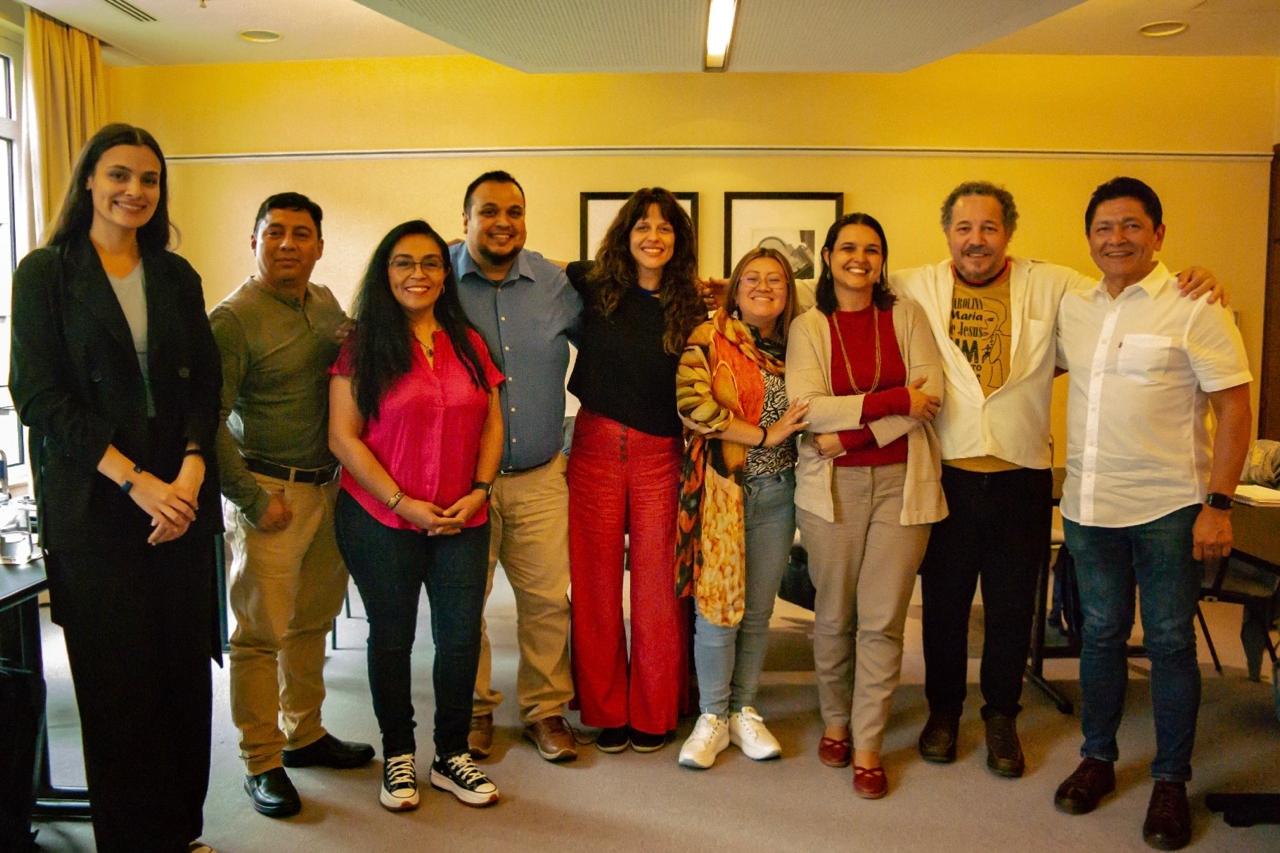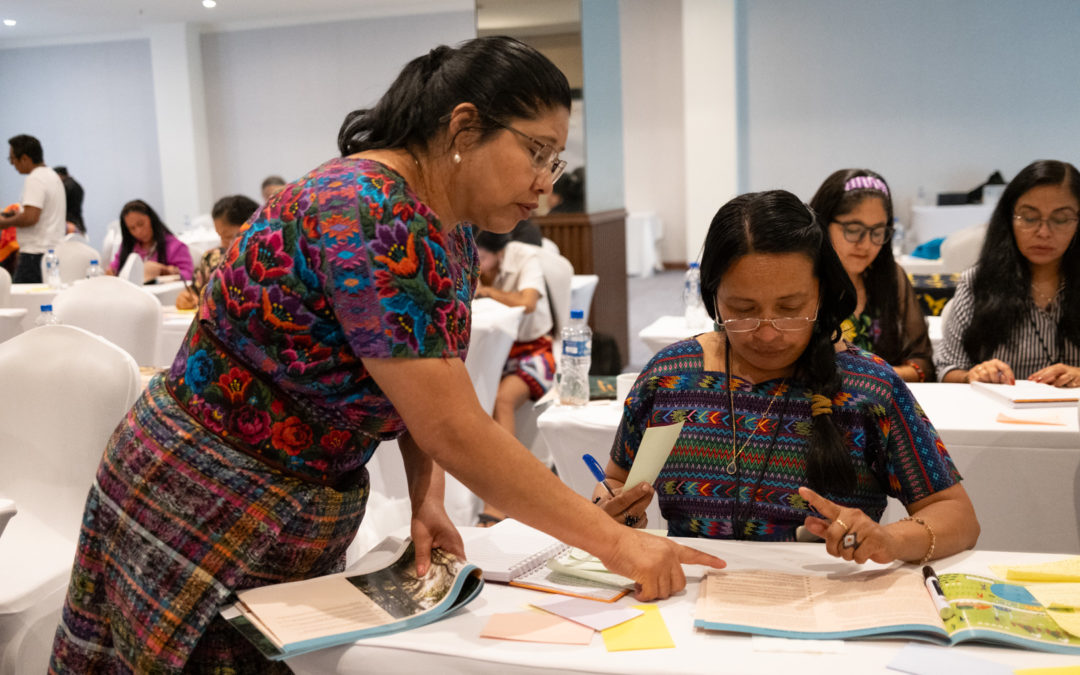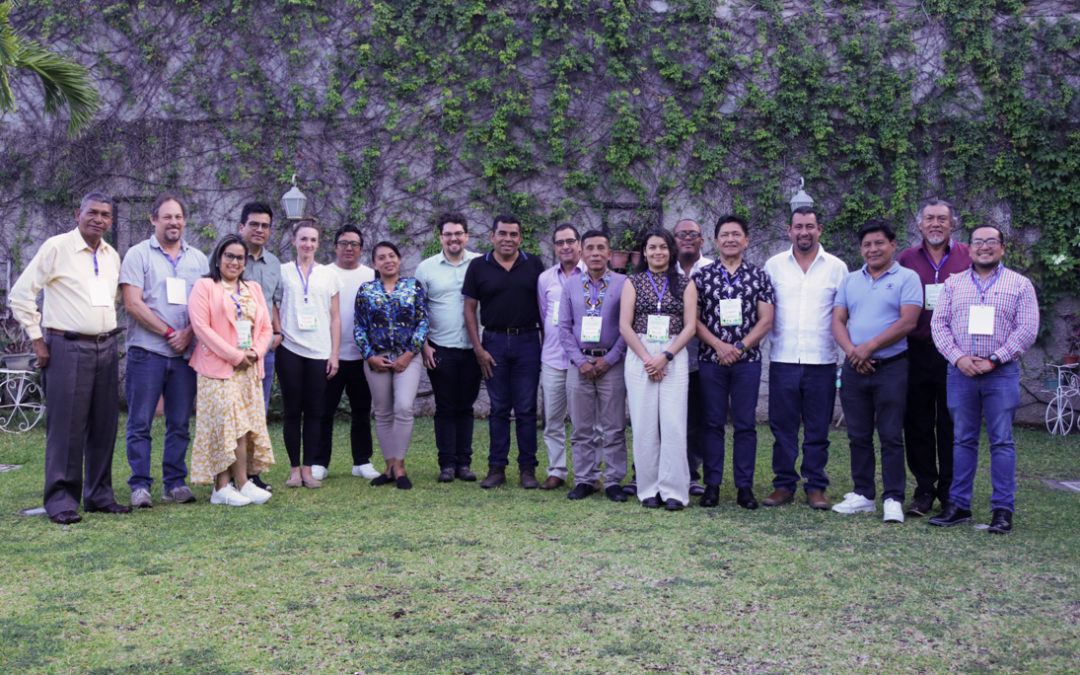Context of the Meeting
Since the establishment of the United Nations Framework Convention on Climate Change (UNFCCC) and its counterparts on Biodiversity (CBD) and Combating Desertification at the Rio Summit in 1992, the term “Local Communities” has been recorded in various documents to generally refer to collectivities inhabiting territories across all regions and different from Indigenous Peoples.
The term “local communities” has notably increased in the last two decades, especially in the context of global processes on biodiversity and REDD+, and they have been recognized in various documents, such as the Cancun Safeguards, with the right to full and effective participation in processes that may directly affect them.
Under this designation of local communities, the following groups, among others, have been identified:
- Indigenous peoples in countries where the legal framework does not recognize their existence.
- Collectivities with an ethnicity different from Indigenous Peoples, who may engage in various activities such as agriculture, herding, fishing, gathering, forest management, and utilization, playing a fundamental role in territorial governance.
- Collectivities with indigenous roots that, due to various causes such as colonization processes, forced migration, or recent extractive projects, have lost their identity and sometimes have been displaced from their original territories.
The adoption of the term “local communities” has had a positive effect, allowing these collectivities in various territories access to participation in processes that can benefit or harm them and which otherwise would have been ignored. For example, in Mexico, more than 50% of the national territory belongs to collective property modalities known as ejidos and agrarian communities, of which about 20% are considered Indigenous, and the rest could be considered local communities.
In Brazil, several peoples and communities have a long-standing process of fighting for the demarcation of territories to recognize their rights over them. This is a shared demand by Indigenous Peoples, local communities, and Afro-descendant peoples, who engage in sustainable resource management and are in constant resistance against megaprojects and extractive projects that would directly affect their territories. In these common struggles, it is desirable to articulate different peoples and communities while respecting the identities of each one.
On the other hand, in various spaces, especially international ones, some Indigenous representations perceive the term “local communities” negatively, considering it a way to undermine Indigenous presence in dialogue and negotiation spaces, or identifying all invaders of their territories as local communities. Among the arguments of this narrative is that recognizing rights for local communities would diminish the rights of Indigenous Peoples, or that local communities should not take advantage of the rights achieved by Indigenous Peoples.
In large part, these perceptions are due to the fact that the agenda of these multilateral spaces has not considered convening representatives of local communities for a collective exercise of defining the criteria for identification and self-identification, or asking these communities if such an exercise already exists. This has created a void that makes it difficult for these groups to fully exercise their rights and dispel the doubts of some Indigenous representatives.
As a contribution to this process, organizations from Brazil, Colombia, Guatemala, Honduras, Mexico, and the Dominican Republic, among others, with the support of the Rights and Resources Initiative (RRI), have advanced in building a proposal for identification and self-identification criteria, which they are sharing with organizations from Asia and Africa to build an interregional or global proposal, as well as a joint advocacy work plan in multilateral spaces that includes alliances with Indigenous Peoples and other collectivities with similar problems and proposals.
To the extent that there is clarity and respect regarding the different identities in the territories, stronger alliances can be built to strengthen territorial governance in the face of external threats, as well as scale up actions against climate change, desertification, and biodiversity protection. Similarly, local public policies can be promoted that consider all subjects of rights in the territories.
Platform for Local Communities and Indigenous Peoples
The Local Communities and Indigenous Peoples Platform (LCIPP) is a fundamental initiative within the UNFCCC, established at COP24 in 2018. Its objective is to strengthen the exchange of knowledge, technologies, and practices between Indigenous Peoples, local communities, and other stakeholders, integrating traditional knowledge with modern science to effectively address climate change. The platform promotes inclusive participation and the recognition of these groups’ rights in global climate processes, reinforcing the resilience and sustainability of their adaptation and mitigation strategies.
General Objective of the Meeting
The interregional meeting of local communities, Afro-descendant peoples, and other collectivities will bring together delegates from representative organizations of Latin America, Asia, and Africa to agree on collaboration on rights recognition towards COP30 on Climate Change.
Specific Objectives of the Meeting
- Collaboratively build a diagnosis of the situation of local communities, Afro-descendant peoples, and Indigenous Peoples in each region.
- Analyze the proposed identification and self-identification criteria for local communities proposed by Latin American organizations.
- Develop a joint work route for Local Communities, Afro-descendant Peoples, and Indigenous Peoples towards COP30.
- Influence the Local Communities and Indigenous Peoples Platform.
- Submit a formal request to the UNFCCC Secretariat for the recognition of Local Communities in the Local Communities and Indigenous Peoples Platform and in other spaces and discussions of the convention.
Mesoamerican Delegation
This meeting is being led by a delegation from AMPB, which includes:
- Guadalupe Leyva, from Mocaf Network and vice president of the board of directors of the Coordinator of Women Territorial Leaders of Mesoamerica (CMLT)
- Osiel Torres, from Mocaf Network
- Dina Juc, in charge of our area of law and culture.
- Gustavo Sánchez, president of MOCAF Network and secretary of our board of directors.
- Selvyn Pérez, from Utz Che’ and treasurer of our board of directors.
Framework of SB60 and FWG 11
This meeting takes place prior to the 11th meeting of the Facilitative Working Group (FWG 11), which will be held from May 29 to June 1, 2024, in Bonn, Germany. This event is key to the preparation for the Conference of the Parties (COP) 30 of the UNFCCC and in the framework of SB60. The formal submission of a request to the UNFCCC Secretariat for the recognition of local communities in the Local Communities and Indigenous Peoples Platform marks a significant step towards equity and justice in the global processes of climate change, biodiversity, and sustainable development.
This interregional meeting not only represents a crucial space for dialogue and collaboration among local communities, Afro-descendant peoples, and other collectivities, but also reinforces the commitment to the struggle for the recognition and defense of territorial rights. As we approach COP30 in Brazil, the results of this interregional meeting will serve as a fundamental pillar in efforts to ensure that all voices are heard and that public policies are developed that consider all rights holders in the territories.



